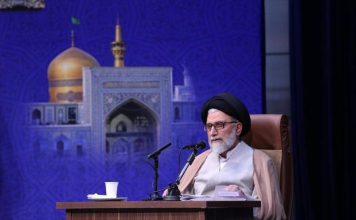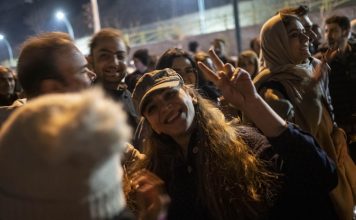Iran’s government produced uranium metal in breach of the 2015 nuclear deal it is signed up to, after being warned by Western powers to scale back its plans to do so.
The production of the uranium metal, which can be used to make the core component of an atom bomb, was confirmed this week by United Nations nuclear watchdog, the International Atomic Energy Agency (IAEA). The Iranian regime said in December that it planned to produce uranium metal fuel for a research reactor.
The UN agency’s report, which was published on Wednesday, said that Tehran intended to produce uranium metal enriched to 20%, which it has now done. Weapons grade uranium enrichment is currently set at 90%.
Mohsen Fakhrizadeh, a man believed by the West to be the nuclear scientist behind a secret government nuclear programme in Iran, was killed in November by Israeli intelligence force Mossad, according to a report by The Jewish Chronicle.
The London-based publication said intelligence sources had told it that agents had smuggled a one-ton gun into Iran, which had been disassembled and brought into the country in pieces. The newspaper went on to say that the operation involved 20 agents from Israel and Iran, and involved eight months of surveillance.
Israel did not comment on the incident at the time. Responding to The Jewish Chronicle’s claims on Wednesday, a government spokesperson said, “We never comment on such matters.”
And an Iranian cleric has said being vaccinated against Covid-19 turns individuals into homosexuals. Ayatollah Abbas Tabrizian told more than 200,000 followers on his Telegram account not to approach people who had taken the vaccine because they had become gay.
Tabrizian, who is openly skeptical about Western medicine, was ridiculed in March for suggesting people should apply violet oil to their rectums to cure Covid infections.
According to a 2008 British WikiLeaks cable, the Iranian regime has killed between 4,000 to 6,000 gays and lesbians since 1979. Ongoing concerns about the treatment of the LGBTQ+ community in Iran were raised in March by the UN’s Special Rapporteur on the situation of human rights in the Islamic Republic of Iran.
[contact-form][contact-field label=”Name” type=”name”][contact-field label=”Email” type=”email”][/contact-form]





